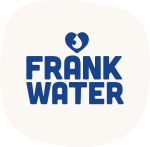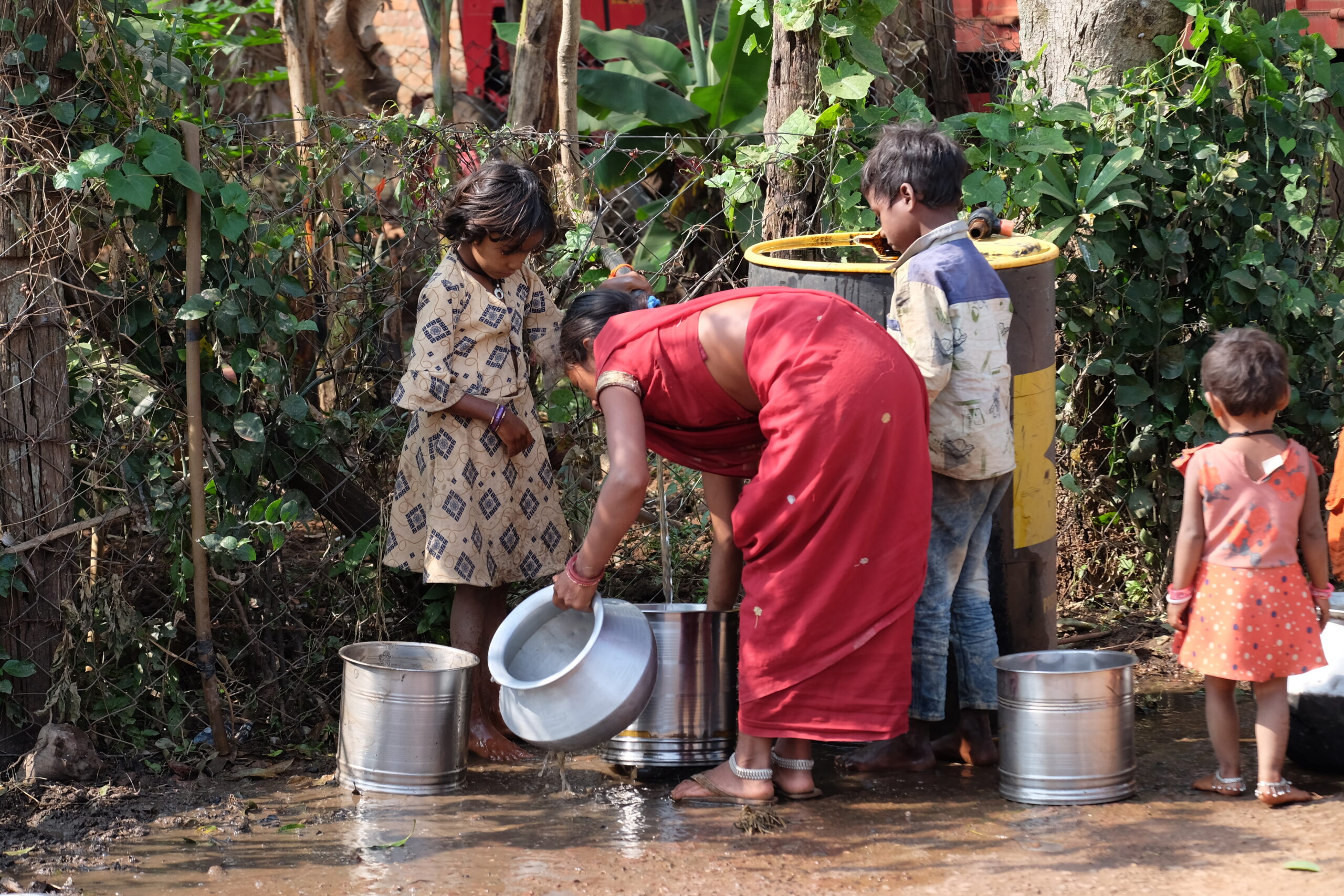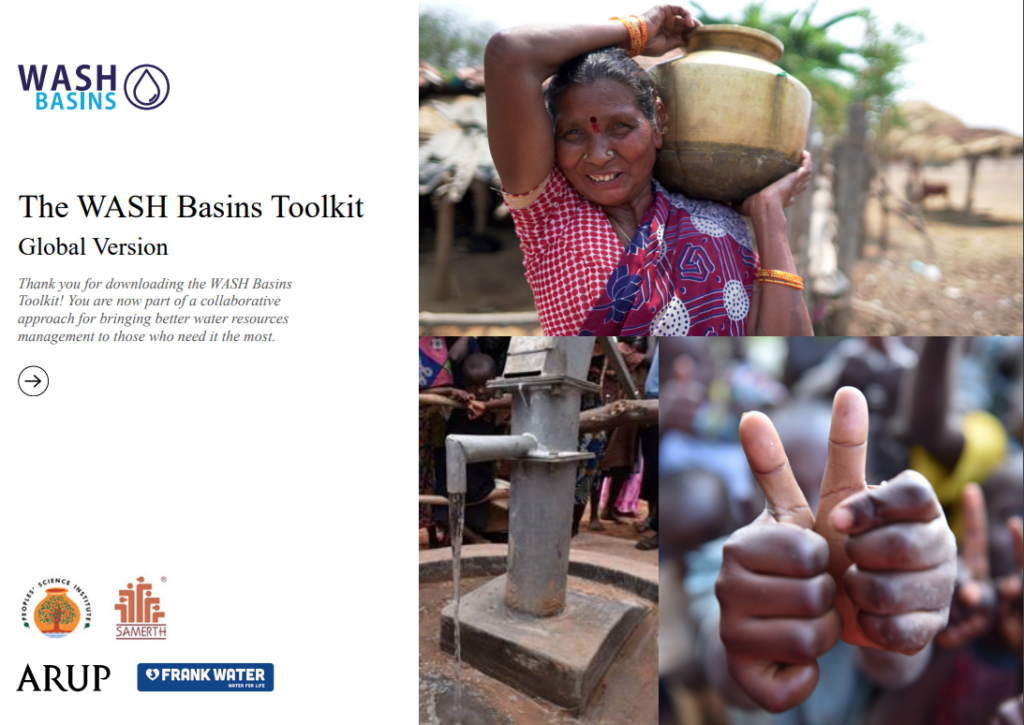Helping future generations move the Overton window on water
22.03.23
By subscribing to our newsletter, you give us permission to email you with news of our work and events, plus opportunities for volunteering, challenges to take part in and special offers in our shop. You can unsubscribe any time by clicking the link in our email footer.

22.03.23

Today is World Water Day. A day that helps us focus on water and the issues and opportunities that come with this precious common resource.
This years ‘theme’ is about accelerating change and going beyond ‘business as usual’. This is a great theme because, if we are to meet our global commitment that ‘everyone would have safely managed water and sanitation by 2030’ we are going to have to pick up the pace of work. The latest data shows that governments must work on average four times faster to meet Sustainable Development Goal (SDG) 6 on water by 2030.
In a world where economies are struggling, poor management and access to water is holding back progress on almost every aspect of human development – from employment to energy, gender to agriculture, climate change to health services. Billions of people across the planet are limited in their lives and livelihoods because we have not made sure everyone has their human right to water fulfilled.
At Frank Water, we’re very aware that water is holding people back. Over the last 18 years, we’ve worked to help almost 500,000 people get better water access and we know we’ve only scratched the surface. That’s why we’re working hard to find ways of accelerating change and making what we do last – for generations.
The central way we look to the future is in terms of environmental sustainability and, with the risk of getting a little technical, we focus on integrated water resources management (IWRM). The UN recently commented that “there is a need to move away from single, targeted and reactive short-term actions towards more holistic, integrated and future-oriented approaches and projects.” and this is what we at Frank Water are doing.
Working with global leaders and strategic partners, like Arup, we’ve spent much of the last decade creating ways of working to make it easier for local communities, governments and NGOs to understand and manage their water. We have found that by understanding their water resources, people tend to value it more and this, in turn, creates careful usage and the water stewards of the future.

This hasn’t been easy because water management involves many parts of the system working together – you need communities to be engaged, hydrologists and hydrogeologists to assess the current situation, civil engineers to create solutions that are workable and local people and governments who are willing to work together to make these plans a reality.
The methodology we created with support from Arup is called the WASH Basins toolkit – it’s award winning and it’s free to download from our website, it even has an app that allows a new generation of community workers to collect data and share results. Originally developed with our NGO partners in India, we’re currently trialing this IWRM work in Kenya and, if it’s as successful as we hope, we’ll be looking to help improve water stewardship across East Africa – helping future generations in a new region.
Back in India however, our journey in IWRM took an interesting new turn in 2022,, aiming to create a methodology for collective water stewardship in the communities around supply chain sites. We called this work ‘Beyond the Boundary’ and, after a successful first year in Bangalore, we are making plans to work in Chennai.
Why does this help us ensure water will last for generations? Two reasons.
First, Beyond the Boundary uses hydrological and social data (we’re using the latest Earth Observation data available from hundreds of satellites and combining it with extensive household and other ‘on the ground’ data sets) to give a groundbreaking understanding of local watersheds.
We don’t stop there. In 2023, we’re continuing this work with the world’s top experts to create a replicable model that can help people across the world understand and improve their water management. In a nutshell, we’re creating a way that companies can become better water stewards through investing in their local communities.
Secondly, through this work, we’re helping to move the ‘Overton window’ on sustainability in supply chains. For future generations to have sustainable water (and a sustainable life as a whole) we need to help companies produce products sustainably. This will allow consumers to choose those products that are sustainably produced and this will allow future generations to choose how they want to treat the environment.
Without doubt, 2023 is a potentially step changing year for our tackling of the water crisis. The UN Water Conference in New York this week is a ‘once in a generation’ meeting. World Water Day itself has been highlighting the water crisis since 1993.
In New York, national governments and stakeholders from all levels of society will collaborate to make voluntary commitments to accelerating progress on SDG 6 and other internationally-agreed water-related goals and targets. These voluntary commitments will form the Water Action Agenda, designed to deliver rapid, transformative change in the remainder of this decade. Are you ready to add yours?
You and your community can make a difference in the way you use, consume and manage water in your everyday life. You have also been invited to make voluntary commitments and these will also be added to the Water Action Agenda – which will be launched at the conference this week.
Remember, this kind of meeting has not happened for nearly 50 years.
Join us at Frank Water in ensuring that water lasts for generations and that in 2073, World Water Day is a celebration of plentiful global access for all.
Our World Water Day appeal is still live and you can have twice the impact by donating before Friday 24th March at midday.